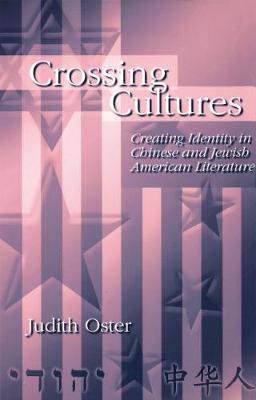In this important new study, Judith Oster looks at the literature of Chinese Americans and Jewish Americans in relation to each other. Examining what is most at issue for both groups as they live between two cultures, languages, and environments, Oster focuses on the struggles of protagonists to form identities that are necessarily bicultural and always in process. Oster contends that the writers of these works are attempting to construct, through their texts, some sort of wholeness and to answer at least partially the questions Who am I? and Where do I belong? Among the figures Oster considers are writers of autobiographical works like Maxine Hong Kingston and Eva Hoffman and writers of fiction: Amy Tan, Anzia Yezierska, Henry Roth, Philip Roth, Cynthia Ozick, Lan Samantha Chang, and Frank Chin. In explicating their work, Oster uses Lacan's idea of the ""mirror stage,"" research in language acquisition and bilingualism, the reader-response theories of Iser and Wimmers, and the identity theories of Charles Taylor, Emile Benveniste, and others. Oster provides detailed analyses of mirrors and doubling in bicultural texts; the relationships between language and identity and between language and culture; and code-switching and interlanguage (English expressed in a foreign syntax). She discusses food and hunger as metaphors that express the urgent need to hear and tell stories. She also shows how American schooling can undermine the home culture's deepest values, exacerbating children's conflicts within their families and within themselves. In a chapter on theories of autobiography, Oster looks at the act of writing and how the page becomes a home that bicultural writers create for themselves. This engaging, readable work is a valuable contribution to multicultural literary criticism.
- ISBN13 9780826214867
- Publish Date 17 December 2003
- Publish Status Out of Stock
- Publish Country US
- Imprint University of Missouri Press
- Format Hardcover
- Pages 283
- Language English
